CEE organises a live audio session with students and experts on its premises, on Tuesday.
“Copenhagen should be renamed Hopelesshagen.” This is what one of the CEE representatives said during a live audio session organised at the institution campus. Some 20 students participated in the session, which was organised to enlighten students in the city about the world meet on climate change being held at Copenhagen.
The aim was to find a successor to the Kyoto Protocol, which expires in 2012. The Copenhagen meet, as the representative pointed out, has turned into a passing game wherein developed countries are refusing to take up any responsibility till developing countries do not pledge commitment.
Under the Kyoto Protocol, all the developed nations that ratified the treaty, except the US, agreed to cut their carbon emissions to 5 per cent below 1990 levels by 2012. The successor treaty, to be agreed at Copenhagen, was intended to secure a cut in global emissions, from the developed and developing worlds alike, of 50 per cent below 1990 levels by 2050. This will lead to more or less total decarbonisation of the world by the end of the century.
“The reason why developed countries use carbon-based energy is that it is the cheapest source of energy, and is likely to remain so in the future as well. Switching to a much more expensive energy may be acceptable to the developed world, but not to the developing countries, where millions of people still suffer from abject poverty. The priority therefore is to use the cheapest available form of energy, which is carbon-based energy” said a student at the conference.
“I doubt if the objective of the meeting will be achieved. I am nevertheless sure that the meeting will still be deemed successful. I believe that minimising the cost of necessary emissions cuts and containing the disruption will require setting the right price for carbon emissions; it must be high, and the same everywhere. With the Indian negotiators joining on Tuesday, we still hope the differences emerging in country positions will be harmonised and confidence regained,” said Mahesh Pandya, director, Paryavaran Mitra, a city-based NGO.
The positive coming out from the Copenhagen meet is the joining of political heads at the summit in its final deliberations. “I had been looking forward to the Copenhagen conference since the objective is to achieve a legally binding agreement to cut greenhouse gas emissions. But, now I have strong doubts about how much can be achieved and how any agreement would be implemented,” said Maitry Contractor, a student.
Rajendra Pachauri from the International Panel on Climate Change, highlighted the importance of taking action on time. “It is very evident that the world will benefit immensely from early action.”
![submenu-img]() This Indian company is world's strongest brand, it's not Reliance, TCS, Wipro, Infosys or Adani Group
This Indian company is world's strongest brand, it's not Reliance, TCS, Wipro, Infosys or Adani Group![submenu-img]() This Mughal emperor was called 'Zinda Peer' because...
This Mughal emperor was called 'Zinda Peer' because...![submenu-img]() Dinesh Karthik names Rohit Sharma's opening partner for Champions Trophy 2025, it's not Yashasvi Jaiswal
Dinesh Karthik names Rohit Sharma's opening partner for Champions Trophy 2025, it's not Yashasvi Jaiswal![submenu-img]() ‘National Space Day, 2024’: Tribute to India’s Stellar Footprints and Catalyst for Future Exploration
‘National Space Day, 2024’: Tribute to India’s Stellar Footprints and Catalyst for Future Exploration![submenu-img]() Badlapur sexual assault case: Internet suspended, 72 arrested amid massive protest
Badlapur sexual assault case: Internet suspended, 72 arrested amid massive protest ![submenu-img]() Rahul Gandhi ने श्रीनगर के लाल चौक पर लोगों के साथ खाई आइसक्रीम, समझे इसके सियासी मायने
Rahul Gandhi ने श्रीनगर के लाल चौक पर लोगों के साथ खाई आइसक्रीम, समझे इसके सियासी मायने![submenu-img]() US में भारतीय डॉक्टर की शर्मनाक करतूत, 6 साल में रिकॉर्ड किए बच्चियों-महिलाओं के 13,000 न्यूड वीडियो, पत्नी को पता लगा तो...
US में भारतीय डॉक्टर की शर्मनाक करतूत, 6 साल में रिकॉर्ड किए बच्चियों-महिलाओं के 13,000 न्यूड वीडियो, पत्नी को पता लगा तो...![submenu-img]() Delhi-NCR में आज और कल नहीं मिलेगी ऑटो-टैक्सी, जानें क्यों हड़ताल पर उतरे ड्राइवर
Delhi-NCR में आज और कल नहीं मिलेगी ऑटो-टैक्सी, जानें क्यों हड़ताल पर उतरे ड्राइवर![submenu-img]() Kolkata Rape-Murder Case: प्रदर्शनकारियों की मांग के आगे झुकी ममता सरकार, हॉस्पिटल के प्रिंसिपल को हटाया
Kolkata Rape-Murder Case: प्रदर्शनकारियों की मांग के आगे झुकी ममता सरकार, हॉस्पिटल के प्रिंसिपल को हटाया![submenu-img]() रईसी से जीना है तो खुद कमाइए, पत्नी ने खर्च के लिए मांगे 6 लाख रुपए महीना, जज साहिबा ने कह दी ये बात
रईसी से जीना है तो खुद कमाइए, पत्नी ने खर्च के लिए मांगे 6 लाख रुपए महीना, जज साहिबा ने कह दी ये बात ![submenu-img]() Meet taxi driver's son, who was humiliated by police, cracked UPSC exam, then become...
Meet taxi driver's son, who was humiliated by police, cracked UPSC exam, then become...![submenu-img]() Meet Indian boy who became world’s youngest surgeon at 7, studied at IIT, he is now...
Meet Indian boy who became world’s youngest surgeon at 7, studied at IIT, he is now...![submenu-img]() Meet woman who lost her father at young age battled society's doubts, then transformed a cinema hall into...
Meet woman who lost her father at young age battled society's doubts, then transformed a cinema hall into...![submenu-img]() Meet man, who left high-paying job to crack UPSC exam, first become IPS, then IAS with AIR...
Meet man, who left high-paying job to crack UPSC exam, first become IPS, then IAS with AIR...![submenu-img]() 5 high-paying jobs in India without a college degree, check here
5 high-paying jobs in India without a college degree, check here![submenu-img]() Kolkata Doctor Murder: BJP Asks CM Mamata Banerjee To Resign Over Kolkata Murder-Rape Case
Kolkata Doctor Murder: BJP Asks CM Mamata Banerjee To Resign Over Kolkata Murder-Rape Case![submenu-img]() Kolkata Doctor Murder: Chirag Paswan Questions CM Mamata’s Protest Rally Over Kolkata Doctor Murder
Kolkata Doctor Murder: Chirag Paswan Questions CM Mamata’s Protest Rally Over Kolkata Doctor Murder![submenu-img]() Kolkata Doctor Murder: Kolkata Doctor's Autopsy Reveals Details Of Injuries And Sexual Assault
Kolkata Doctor Murder: Kolkata Doctor's Autopsy Reveals Details Of Injuries And Sexual Assault![submenu-img]() Kolkata Doctor Murder: WB Governor Slams CM Mamata, Says Not Society But Present Govt. Failed Women
Kolkata Doctor Murder: WB Governor Slams CM Mamata, Says Not Society But Present Govt. Failed Women![submenu-img]() Uttarakhand Bus Stand Rape: Five Held After Girl Gang-Raped In A Bus At Dehradun ISBT
Uttarakhand Bus Stand Rape: Five Held After Girl Gang-Raped In A Bus At Dehradun ISBT![submenu-img]() Where is Olympics Gold medalist Arshad Nadeem? Will he challenge Neeraj Chopra at Diamond League?
Where is Olympics Gold medalist Arshad Nadeem? Will he challenge Neeraj Chopra at Diamond League?![submenu-img]() Vinesh Phogat to enter politics? Report says she is likely to contest against...
Vinesh Phogat to enter politics? Report says she is likely to contest against...![submenu-img]() Arshad Nadeem's net worth was just Rs 80 lakh before Gold medal win, his current net worth is Rs...
Arshad Nadeem's net worth was just Rs 80 lakh before Gold medal win, his current net worth is Rs...![submenu-img]() Haryana govt awards Rs 5 crore to Olympics medallist Manu Bhaker, check how much Neeraj Chopra, Vinesh Phogat got
Haryana govt awards Rs 5 crore to Olympics medallist Manu Bhaker, check how much Neeraj Chopra, Vinesh Phogat got![submenu-img]() Vinesh Phogat finally smiles again as she receives gold medal after Paris Olympics heartbreak
Vinesh Phogat finally smiles again as she receives gold medal after Paris Olympics heartbreak![submenu-img]() Eat these healthy vegan foods if you want to lose weight
Eat these healthy vegan foods if you want to lose weight![submenu-img]() In: 5 beautiful places you must visit in Kalka-Shimla
In: 5 beautiful places you must visit in Kalka-Shimla![submenu-img]() Meet Salman Khan's 'niece' who worked in TV, became star at 7, was called 'mini Katrina Kaif'; then left films, now...
Meet Salman Khan's 'niece' who worked in TV, became star at 7, was called 'mini Katrina Kaif'; then left films, now...![submenu-img]() Countries with highest number of vegetarians
Countries with highest number of vegetarians![submenu-img]() This Amitabh flop was rejected by Dilip Kumar, had 4 stars, its failure was celebrated by film industry, earned only..
This Amitabh flop was rejected by Dilip Kumar, had 4 stars, its failure was celebrated by film industry, earned only..![submenu-img]() ‘National Space Day, 2024’: Tribute to India’s Stellar Footprints and Catalyst for Future Exploration
‘National Space Day, 2024’: Tribute to India’s Stellar Footprints and Catalyst for Future Exploration![submenu-img]() Badlapur sexual assault case: Internet suspended, 72 arrested amid massive protest
Badlapur sexual assault case: Internet suspended, 72 arrested amid massive protest ![submenu-img]() What Sebi can learn from Pinochet case in conflict and propriety
What Sebi can learn from Pinochet case in conflict and propriety![submenu-img]() Raipur-Hyderabad Expressway: Check travel time, distance, route, status and more
Raipur-Hyderabad Expressway: Check travel time, distance, route, status and more![submenu-img]() PM Modi arrives in Poland, first visit by Indian PM in 45 years
PM Modi arrives in Poland, first visit by Indian PM in 45 years![submenu-img]() Jammu and Kashmir Assembly elections: What is delimitation that paved the road for these Elections?
Jammu and Kashmir Assembly elections: What is delimitation that paved the road for these Elections?![submenu-img]() Wings of Refuge: Rafales escort Hasina to safety
Wings of Refuge: Rafales escort Hasina to safety![submenu-img]() Bangladesh in a crisis: A coup, protests and a fleeing Prime Minister
Bangladesh in a crisis: A coup, protests and a fleeing Prime Minister![submenu-img]() DNA Explainer: What is Waqf Board Act and why does Modi government want to amend it?
DNA Explainer: What is Waqf Board Act and why does Modi government want to amend it?![submenu-img]() DNA Explainer: Why is Bangladesh burning again?
DNA Explainer: Why is Bangladesh burning again?




















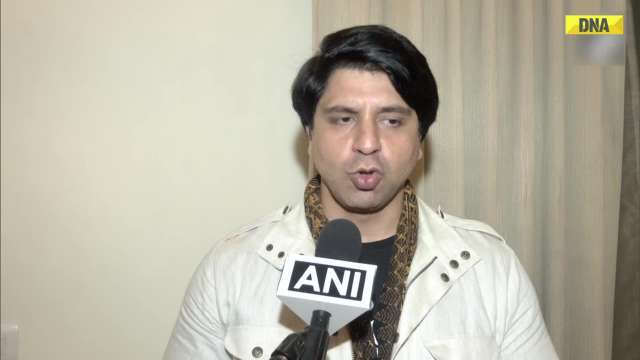
















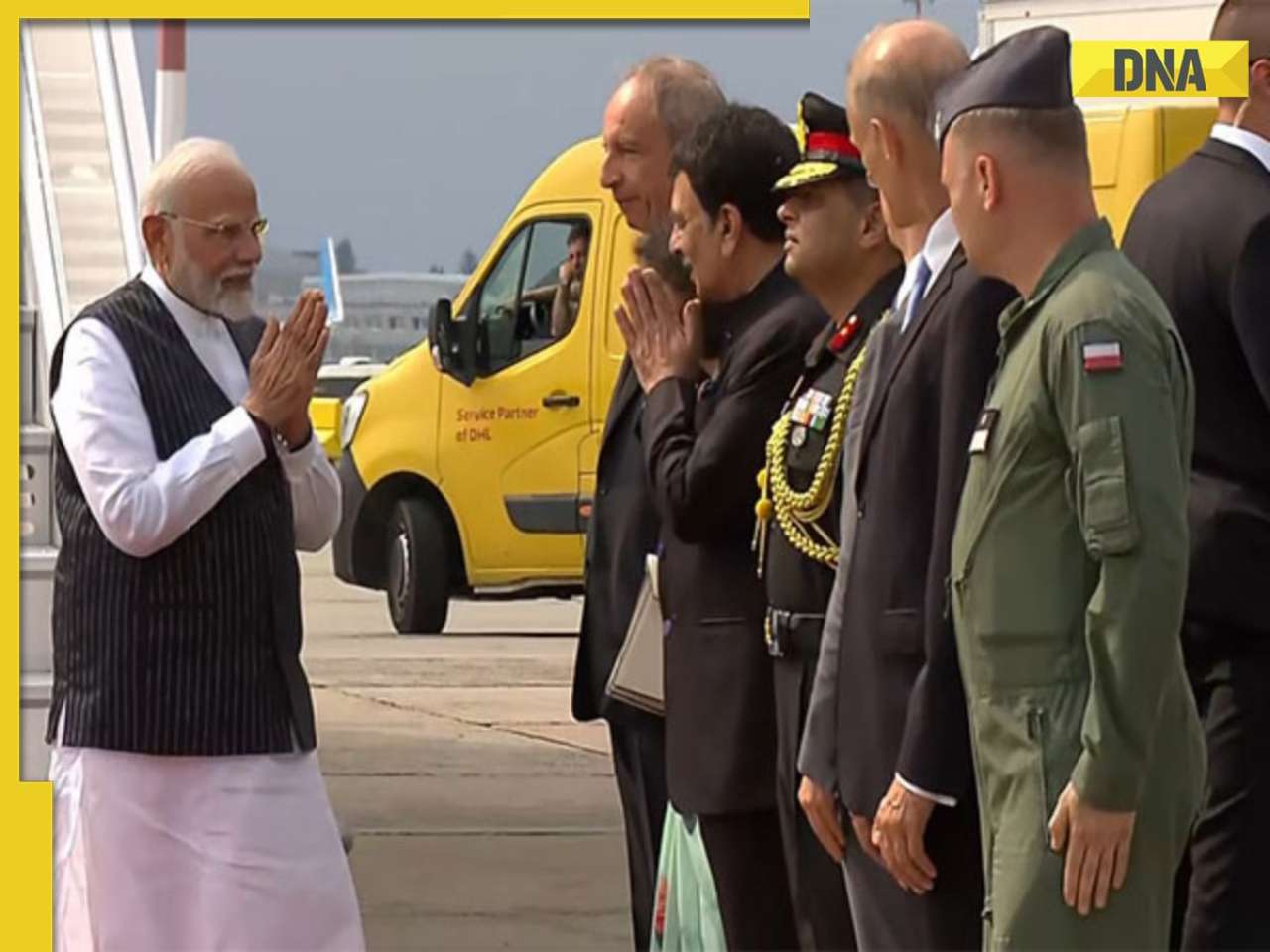
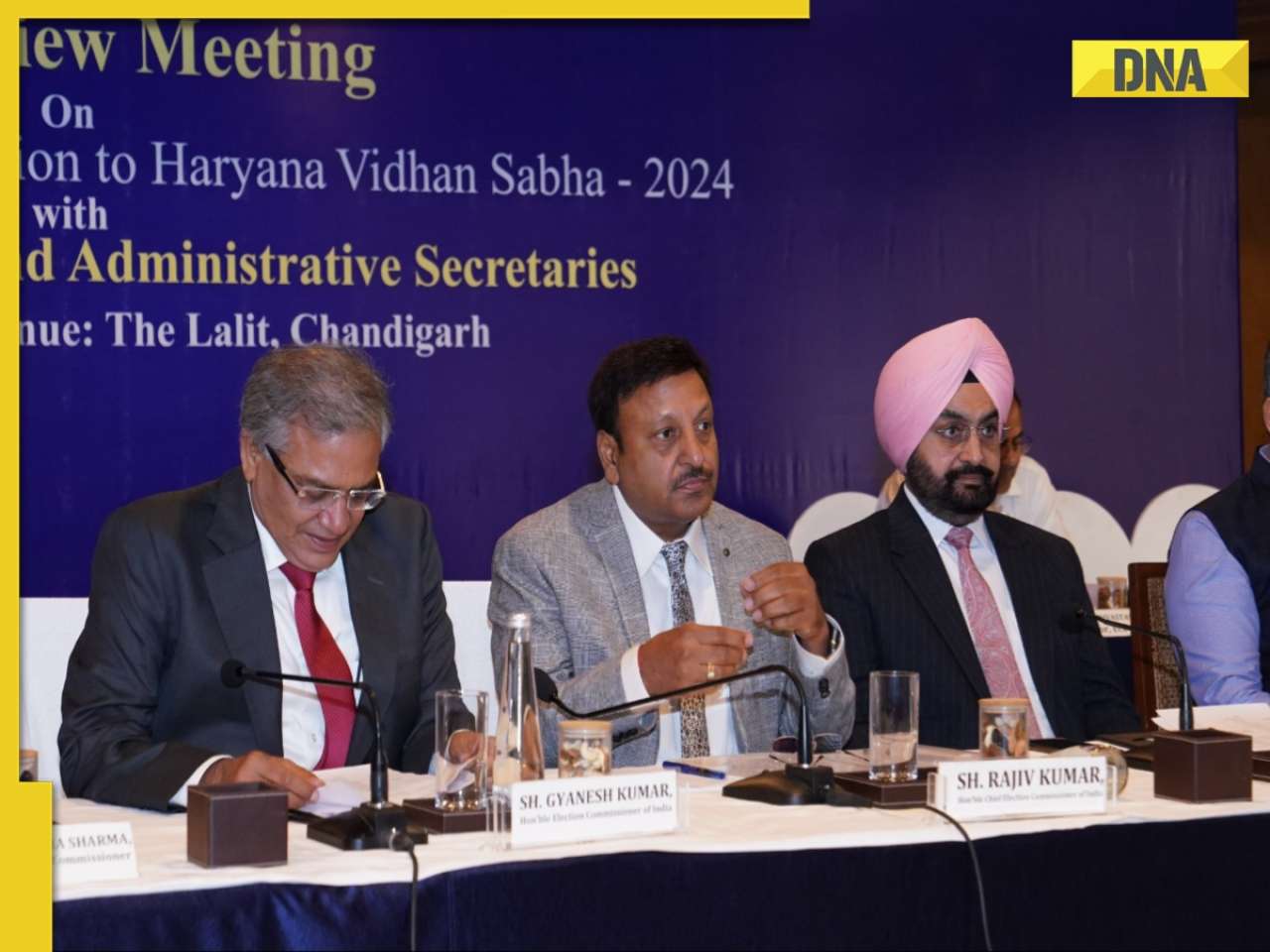
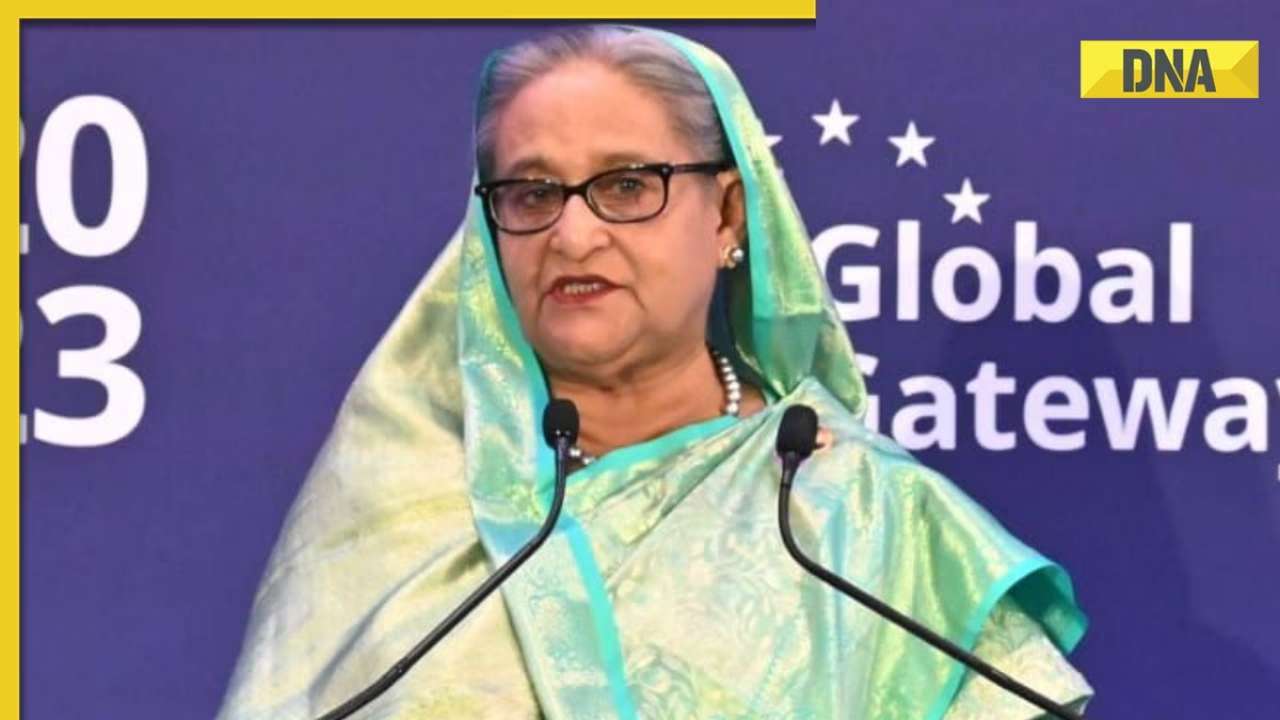
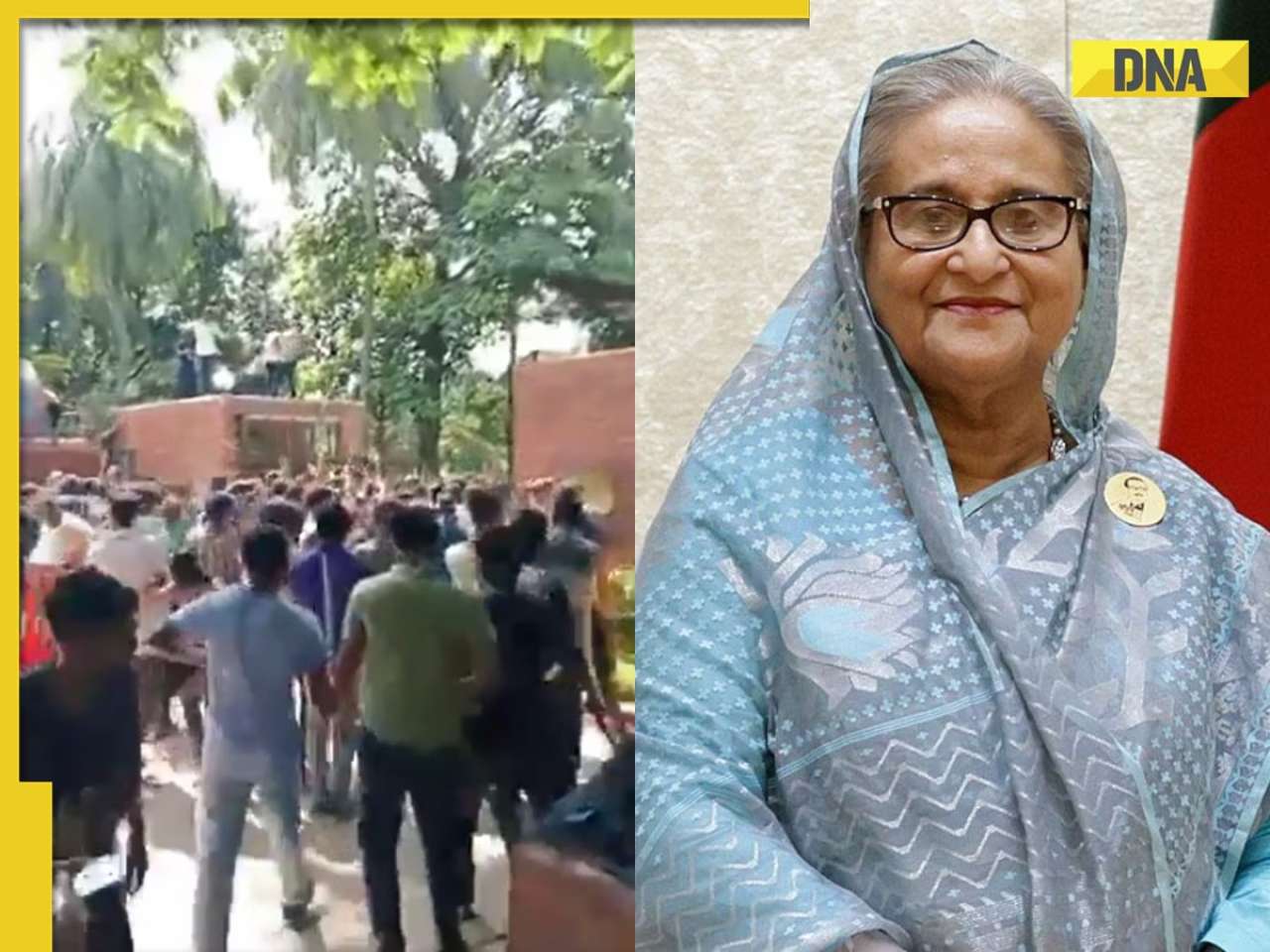
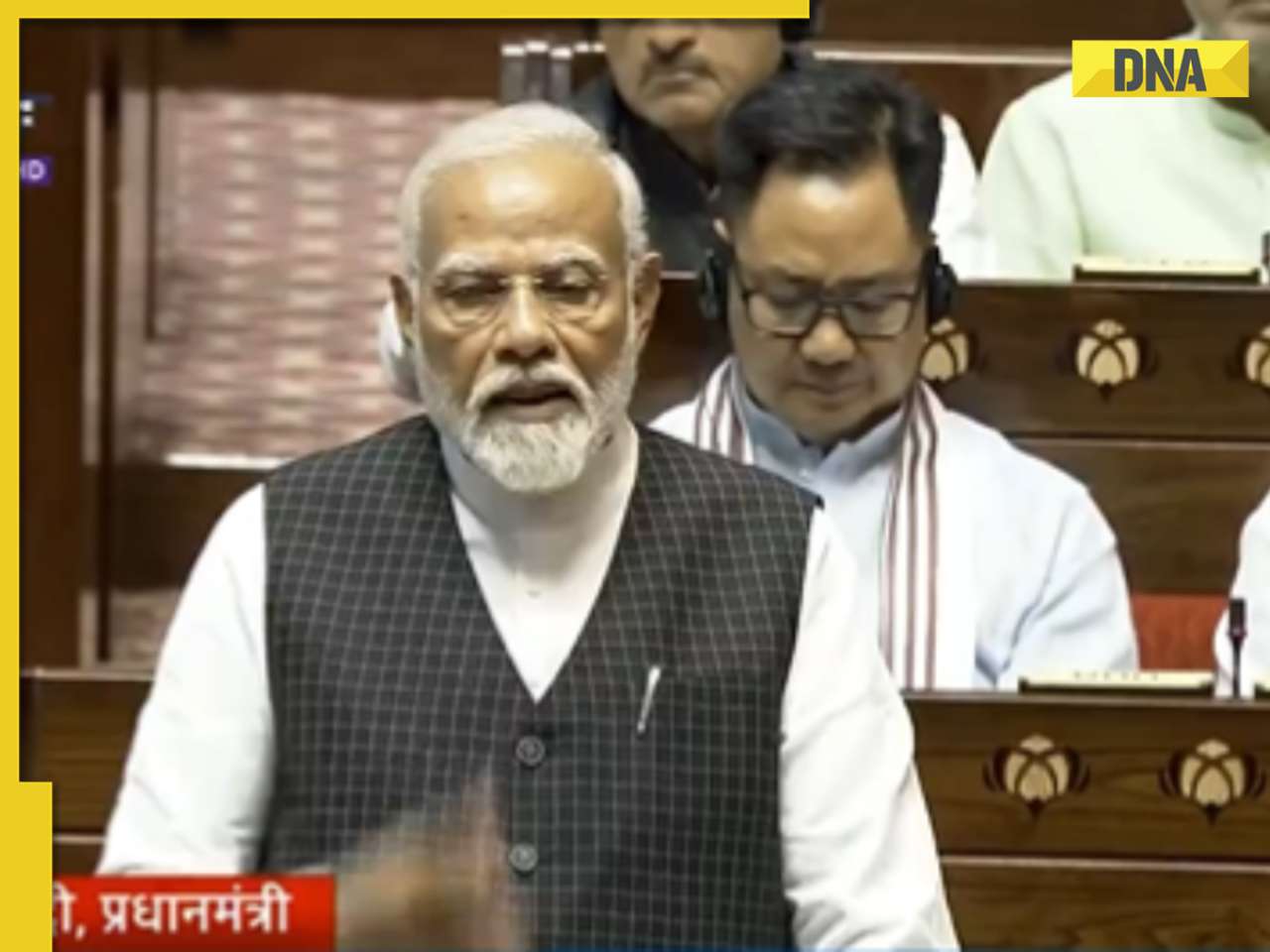



)
)
)
)
)
)
)
)
)
)
)
)
)
)





)
)
)
)
)
)